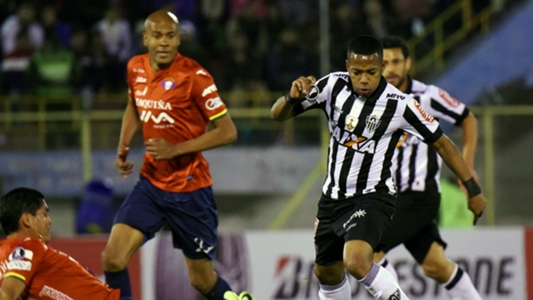River
River played at the Monumental stadium to secure their place in the quarter-finals. Guaraní needed almost a miracle to turn the tie around after a 2-0 defeat in the first leg in Paraguay. After securing the qualification, the Millonario awaits their opponent, and they could face Jorge Wilstermann or Atlético Mineiro: on Wednesday at 21:45, the Brazilian team will try to overturn the 1-0 defeat they suffered in Cochabamba a little over a month ago. Although there are no easy matches in these decisive stages, in Núñez they analyze the advantages and disadvantages of each potential matchup: which opponent would be best for Marcelo Gallardo's team?
Wilstermann, the leader of the Bolivian championship
Wilstermann, who currently has the advantage in the head-to-head, is the leader of the Bolivian championship and qualified for the round of 16 as the second in Group 5 with nine points. Like most teams in their country, they rely on altitude as their great ally, but they struggle every time they play at lower grounds: so far in the tournament, they won all four home games (three in the group stage and the first leg against Mineiro) and lost the three away games. However, they have caused headaches for more than one opponent: Palmeiras struggled to beat them by the minimum and Atlético Tucumán was close to dropping points against them.
Mosquera's influence on Wilstermann
Regarding football, the arrival of Peruvian coach Roberto Mosquera had a big influence on Aviador's current form. Under the command of their current coach, the team achieved a historic qualification to the round of 16, which hadn't happened since 1999, despite Thomaz Santos -their main player- leaving for Sao Paulo. To achieve this, they relied on a spine that the coach finds very reliable: goalkeeper Raúl Olivares, defender Edward Zenteno, playmaker Rudy Cardozo, and the goalscorers Ricardo Perdriel and Gilbert Álvarez. Additionally, Argentine Cristian Pochi Chávez improved his game and became an important piece, while Brazilian Serginho brings moments of brilliance.
Mineiro's contrasting present
On the other hand, the present of Mineiro is quite different. Although Galo reached the round of 16 as the best of all the group winners, with 13 points and a +11 goal difference, their current situation is completely different: after starting the year with expectations of fighting for the title in both Brasileirao and Libertadores, internal problems within the club (especially between the players and the board) led to a severe crisis that left the team four points away from the relegation zone in the domestic league and cost coach Roger Machado his job. Just under 20 days ago, Rogério Micale took over as his replacement.
Mineiro's change of tactics
The change at the helm led to a substantial change in Galo's style of play: from being a team that relied on ball possession and collective play, Mineiro is now a much more direct team, which tries to attack quickly and press high when they don't have the ball. With a wide variety of attacking options (Cazares, Rafael Moura, Robinho, Pablo, Valdivia, Marlone, and the top scorer Fred, who scored 23 goals in 35 games in 2017), the team from Belo Horizonte is dangerous for anyone who faces them. However, at the same time, they suffer many defensive problems: in their last ten matches, they only won two, while losing seven - including the defeat in Bolivia - drawing one and only managing to keep a clean sheet on one occasion (2-0 against Coritiba).

